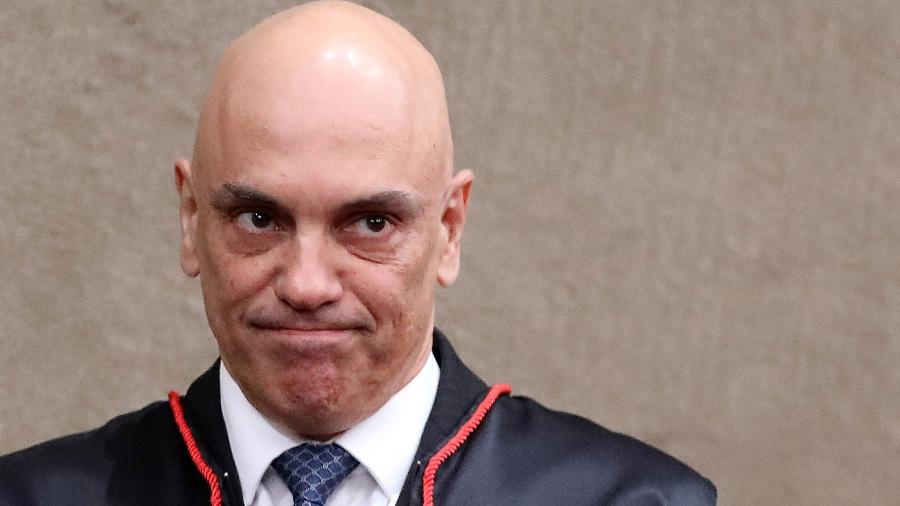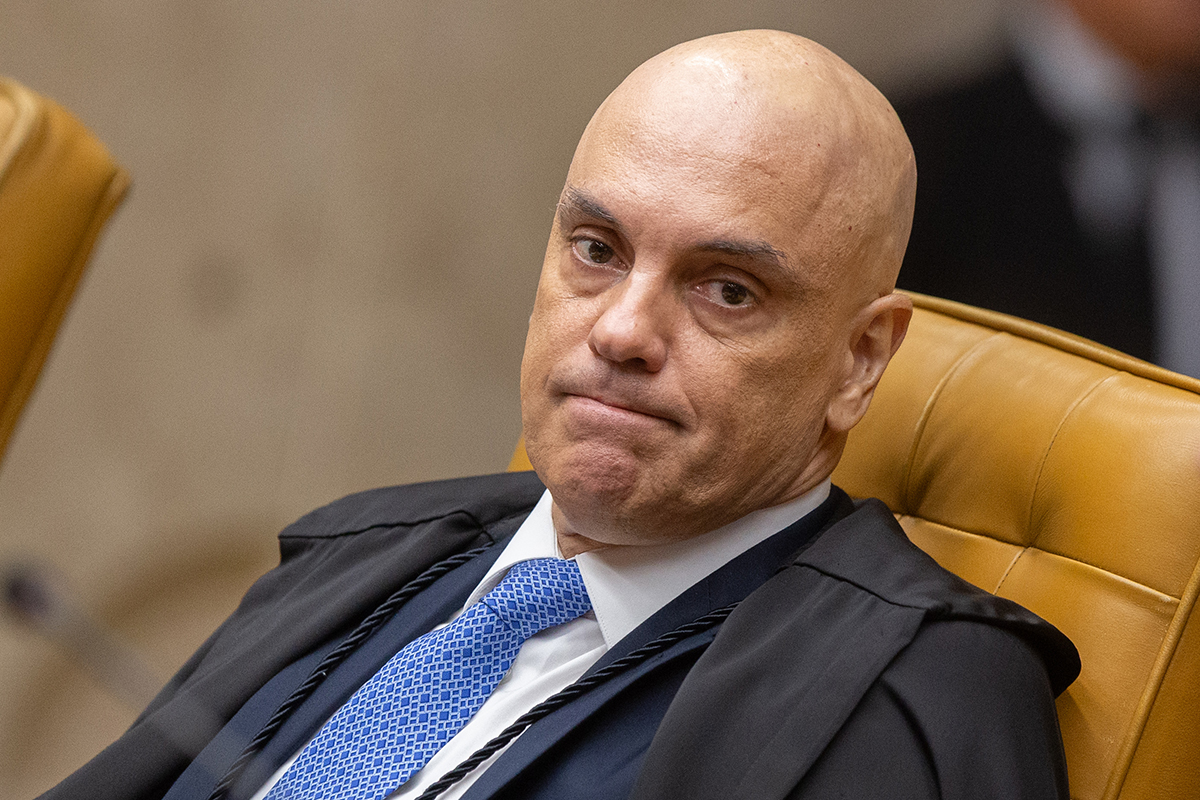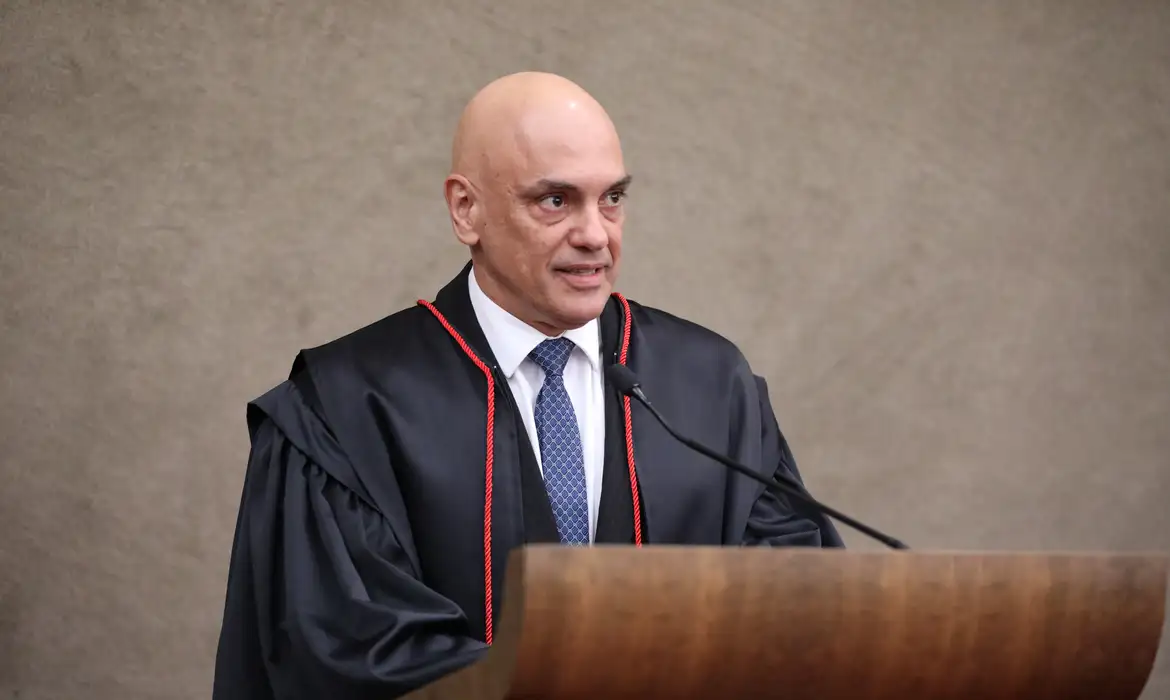There's a name that keeps popping up in conversations about Brazil's political scene, and it belongs to a very prominent figure: Alexandre de Moraes. He is, to many, a truly central character in the ongoing story of one of the world's biggest democracies. People are, in a way, often curious about his role and the impact he has on the nation's direction.
This Brazilian Supreme Court Justice has, you know, been at the heart of some truly significant happenings. From judicial decisions that grab headlines to direct conflicts with global figures, his presence is often felt across various spheres. His actions, so it would seem, have generated much discussion, both within Brazil's borders and far beyond them.
We're going to take a closer look at who Alexandre de Moraes is, what his responsibilities entail, and the specific events that have placed him in the international spotlight. This includes, for example, his efforts to manage online content and the recent economic sanctions imposed by the United States. It's quite a story, actually.
Table of Contents
- Biography: Early Life and Career
- Personal Details and Bio Data
- The Supreme Court and Brazil's Political Landscape
- A Campaign Against Online Extremism
- The U.S. Sanctions and International Debate
- The "Judge and Jury" Debate: Tactics and Controversy
- Frequently Asked Questions (FAQ)
Biography: Early Life and Career
Alexandre de Moraes, a name now very well-known, first saw the light of day on December 13, 1968, in Sao Paulo, Brazil. This city, you know, is a huge, bustling place, and it's where his journey began. His educational path led him to the University of Sao Paulo, where he pursued a degree in law. That's where he built the foundation for his impressive legal career.
His ascent to power, interestingly enough, had a rather specific beginning. It was in 2017 when he received an appointment that some have called "suspicious." This happened during a time when Brazil was deeply immersed in the "Operation Car Wash" (Lava Jato) corruption investigation. This investigation, so it was, truly shook the nation, uncovering widespread corruption across various sectors. His appointment, in this context, really set the stage for his future influence. He has, in a way, been a key figure ever since.
Personal Details and Bio Data
| Detail | Information |
|---|---|
| Full Name | Alexandre de Moraes |
| Date of Birth | December 13, 1968 |
| Place of Birth | Sao Paulo, Brazil |
| Nationality | Brazilian |
| Education | Law degree from the University of Sao Paulo |
| Current Role | Justice of the Supreme Federal Court (STF) of Brazil |
The Supreme Court and Brazil's Political Landscape
As a Justice of Brazil's Supreme Federal Court, Alexandre de Moraes holds a position of immense significance. The Supreme Court, basically, is the highest judicial body in the country, and its decisions carry a great deal of weight. It has, for example, a vital role in interpreting the constitution and ensuring the rule of law. Moraes, in this capacity, has become one of Brazil's most prominent judges, often seen as a central figure in the nation's legal and political discussions.
His involvement was, in a way, truly crucial to Brazil's transfer of power at a particular moment. This suggests that his decisions and influence played a very direct part in how leadership changed hands. Such a role, you know, places a judge right at the heart of a country's democratic processes, especially when things are shifting. It's a heavy responsibility, and he has, apparently, carried it with considerable impact.
He is, in some respects, seen as a "political rorschach test." This means that people often interpret his actions and his character differently, depending on their own political views and perspectives. What one person sees as a necessary defense of democracy, another might view as an overreach of judicial power. This varied perception, actually, highlights the complex and often divisive nature of the issues he addresses. He tends to be a figure who sparks strong opinions, both for and against his methods.
A Campaign Against Online Extremism
Over the past several years, Justice Alexandre de Moraes has, very publicly, undertaken what is described as an "aggressive campaign" to rid the Brazilian internet of certain content. This effort is, basically, aimed at combating extremism online. It's a big task, and it involves making tough decisions about what can and cannot be said or shared on digital platforms. He has, in a way, taken on the challenge of trying to shape the online environment in Brazil, which is a rather significant undertaking.
This campaign, as a matter of fact, has put him directly at odds with some very influential global figures. His work in this area has, for instance, pitted him against Jair Bolsonaro, who was Brazil's former president, and also against Donald Trump, the former U.S. president. These confrontations, you know, highlight the broad reach of the issues he's addressing and the strong opinions surrounding them. It's a clear sign that the fight against online extremism isn't just a local issue; it has international implications.
Clashes with Elon Musk and X
One of the most notable clashes involving Alexandre de Moraes has been with Elon Musk, the owner of the social media platform X (formerly Twitter). On August 30th, Moraes ordered X to be blocked in Brazil. This decision, as you can imagine, caused a huge stir. Elon Musk, who is, like, fighting to maintain his platform in one of the biggest democracies globally, made a rather disparaging comparison to a well-known fictional character, suggesting the justice was acting like a powerful, dark wizard from a popular book series. This comparison, in a way, really brought the conflict into the public eye.
The core of this disagreement centers on the regulation of social networks. Justice Moraes has, basically, been trying to enforce rules about content that he believes contributes to extremism or undermines democratic processes. Musk, on the other hand, seems to champion a more absolute view of free speech on his platform. This difference in perspective has, you know, led to a very public and rather intense dispute. It's a situation that raises big questions about how much control a government should have over online speech and what the limits of that control might be. This kind of debate is, in fact, happening in many places around the world.
Confrontations with Bolsonaro and Trump
Beyond the high-profile dispute with Elon Musk, Alexandre de Moraes has also found himself in direct confrontation with other significant political figures, including Brazil's former president, Jair Bolsonaro, and former U.S. President Donald Trump. These clashes, in some respects, stem from Moraes's commitment to fighting what he perceives as extremist narratives and actions online. He has, apparently, been quite active in this area, which has naturally led to friction with those who hold different views on freedom of expression or the nature of political discourse.
The Trump Media & Technology Group, which, you know, is majority owned by Mr. Trump and operates his Truth Social site, actually sued Justice Alexandre de Moraes in a U.S. court. This action highlights the international reach of these disputes and the willingness of various parties to pursue legal avenues across borders. It shows, basically, that the issues Moraes is dealing with are not confined to Brazil; they resonate with broader global debates about social media, political speech, and judicial authority. This kind of legal challenge, you know, adds another layer of complexity to his already demanding role.
The U.S. Sanctions and International Debate
In a truly significant development, the United States Department of the Treasury’s Office of Foreign Assets Control (OFAC) announced sanctions against Brazilian Supreme Federal Court Justice Alexandre de Moraes. This happened on July 30, 2025, at 08:35 PM CEST. These sanctions, as a matter of fact, were imposed under the Magnitsky Act. This act is, basically, a law that allows the U.S. government to sanction foreign individuals who are deemed responsible for human rights violations or significant corruption. It's a serious measure, and it's meant to send a strong message.
The U.S. alleged that Moraes was involved in the "suppression" of free speech and described his actions as an "unlawful witch hunt against U.S. and Brazilian citizens and companies." A representative, Bessent, stated that Moraes had, in a way, taken it upon himself to be "judge and jury" in this pursuit. This accusation, you know, is quite strong and suggests a concern about due process and judicial overreach. You can learn more about the Magnitsky Act on the U.S. Treasury website.
Brazil, as a nation, has responded to these sanctions. Brazil's Supreme Court, for instance, released a statement on Wednesday, July 30th, expressing solidarity with Justice Alexandre de Moraes. This show of support from his own institution indicates that, within Brazil's judicial system, there is a belief in the legitimacy of his actions and a rejection of the U.S. claims. The Brazilian government, you know, also criticized the U.S. Treasury’s decision to impose these sanctions. This situation, in some respects, has clearly escalated, creating a diplomatic point of tension between the two countries. It's a complex situation, with different sides holding very firm positions.
The "Judge and Jury" Debate: Tactics and Controversy
Alexandre de Moraes's approach to his duties, particularly his "aggressive tactics," has sparked considerable debate. People are, in a way, asking a very fundamental question: "Can one go too far to fight the far right?" This query, you know, gets right to the heart of the controversy surrounding his methods. While he has been seen as crucial in Brazil's transfer of power and in fighting extremism, the manner in which he operates has raised concerns about the balance between security and individual liberties. He is, apparently, a figure who makes strong moves.
His critics, for instance, point to instances where they feel he has acted as both "judge and jury." This phrase suggests that he might be making decisions without sufficient checks and balances, or that his actions might exceed the traditional boundaries of a judge's role. This perception, basically, contributes to the idea that he is a "political rorschach test," meaning people interpret his actions very differently depending on their own political leanings. It's a situation where the same action can be seen as either a necessary defense of democracy or an alarming abuse of power. This debate is, in fact, ongoing, and it highlights the challenges of governing in a polarized political climate.
The discussion around Moraes's tactics also touches upon the broader issue of judicial activism. When a judge takes a very active role in shaping public policy or addressing societal issues, it can lead to accusations of overstepping boundaries. His efforts to rid the Brazilian internet of certain content, while aimed at combating extremism, have, in some respects, been seen by some as infringing on freedom of expression. This tension between maintaining order and protecting rights is a constant challenge for any judicial system, and it's a very prominent feature of the conversations about Justice Moraes. You can learn more about on our site, and also explore related topics on this page .
Frequently Asked Questions (FAQ)
Here are some common questions people often have about Justice Alexandre de Moraes:
Why was Alexandre de Moraes sanctioned by the US?
The U.S. Department of the Treasury’s Office of Foreign Assets Control (OFAC) sanctioned Alexandre de Moraes under the Magnitsky Act on July 30, 2025. The U.S. alleged his involvement in the suppression of free speech and described his actions as an "unlawful witch hunt" against certain citizens and companies. This decision, in a way, caused a diplomatic stir, though Brazil's Supreme Court expressed solidarity with him.
What is Alexandre de Moraes's role in Brazil's government?
Alexandre de Moraes is a Justice of the Supreme Federal Court (STF) of Brazil. This is the highest judicial body in the country. He is, basically, one of Brazil's most prominent judges and has played a truly crucial role in the nation's political landscape, including its transfer of power. He tends to be at the center of many important legal and political discussions.
What is the controversy surrounding Alexandre de Moraes and Elon Musk?
The controversy between Alexandre de Moraes and Elon Musk, the owner of X (formerly Twitter), centers on the regulation of online content in Brazil. Moraes ordered X to be blocked in Brazil on August 30th, citing concerns about online extremism. Musk has, like, openly criticized Moraes's actions, leading to a very public dispute about free speech versus government oversight on social media platforms. It's a very, very public disagreement, actually.
Related Resources:



Detail Author:
- Name : Prof. Rashawn Fisher
- Username : spinka.aliyah
- Email : jordi40@bosco.com
- Birthdate : 1995-01-03
- Address : 6137 Marley Roads Apt. 707 South Fernandotown, IA 87815
- Phone : 351.564.3374
- Company : Zieme, Goodwin and Schowalter
- Job : Archivist
- Bio : Qui aut consectetur ut ipsa voluptatum earum aut. Quos voluptatum est neque officia pariatur. Aliquid et rerum atque impedit facilis explicabo itaque.
Socials
instagram:
- url : https://instagram.com/tara.mertz
- username : tara.mertz
- bio : Quo sint magnam repellat voluptate at dolorem. Quia totam quo soluta.
- followers : 235
- following : 515
twitter:
- url : https://twitter.com/mertzt
- username : mertzt
- bio : Iure a consequuntur consequatur et corporis vel laboriosam. Ut dignissimos aut velit et quam. Id ut illum saepe ullam. Voluptas voluptatum harum et libero.
- followers : 4626
- following : 1102
tiktok:
- url : https://tiktok.com/@mertzt
- username : mertzt
- bio : Tempora atque omnis ex adipisci hic repudiandae.
- followers : 3437
- following : 449